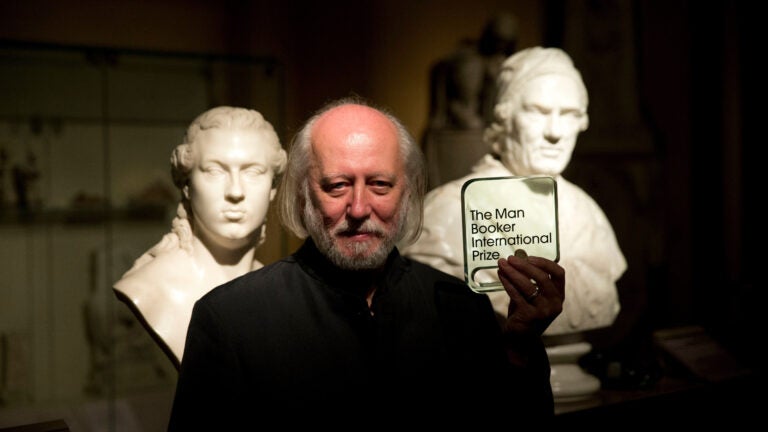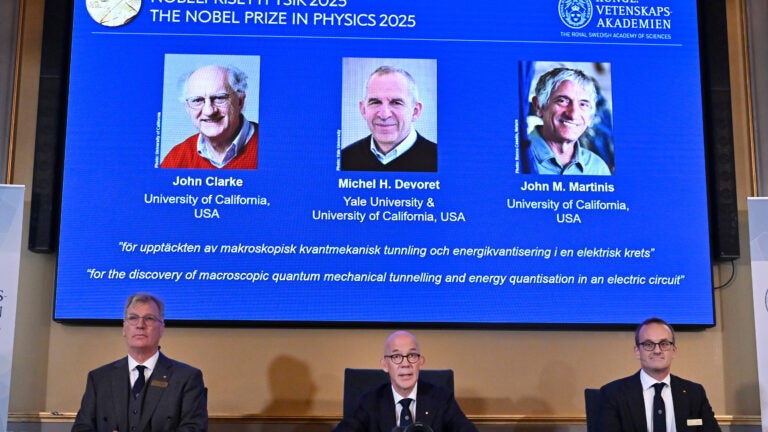Books
Krasznahorkai, 71, has received many awards including the 2015 Man Booker International Prize.

STOCKHOLM (AP) — Hungarian writer László Krasznahorkai, whose philosophical, bleakly funny novels often unfold in single sentences, won the Nobel Prize in literature Thursday for his for his “compelling and visionary oeuvre that, in the midst of apocalyptic terror, reaffirms the power of art.”
Several works including his debut, “Satantango” and “The Melancholy of Resistance,” were turned into films by Hungarian director Béla Tarr.
The Nobel judges praised his “artistic gaze which is entirely free of illusion, and which sees through the fragility of the social order combined with his unwavering belief in the power of art,” Steve Sem-Sandberg of the Nobel committee said at the announcement.
“László Krasznahorkai is a great epic writer in the Central European tradition that extends through (Franz) Kafka to Thomas Bernhard, and is characterized by absurdism and grotesque excess,” the Nobel judges said.
Krasznahorkai, 71, could not immediately be reached for his reaction. He did not speak at the announcement.
He has received many awards including the 2015 Man Booker International Prize. The Booker judges praised his “extraordinary sentences, sentences of incredible length that go to incredible lengths, their tone switching from solemn to madcap to quizzical to desolate as they go their wayward way.”
He also won the National Book Award for Translated Literature in the U.S. in 2019 for “Baron Wenckheim’s Homecoming.”
The American writer and critic Susan Sontag has described Krasznahorkai as the “contemporary master of the Apocalypse.” He was also friends with American poet and writer Allen Ginsberg and would regularly stay in Ginsberg’s apartment while visiting New York City.
He is the first winner from Hungary since Imre Kertesz in 2002. He joins an illustrious list of laureates that includes Ernest Hemingway, Toni Morrison and Kazuo Ishiguro.
The literature prize has been awarded by the Nobel committee of the Swedish Academy 117 times to a total of 121 winners. Last year’s prize was won by South Korean author Han Kang for her body of work that the committee said “confronts historical traumas and exposes the fragility of human life.”
The literature prize is the fourth to be announced this week, following the 2025 Nobels in medicine, physics and chemistry.
The winner of the Nobel Peace Prize will be announced on Friday.
The final Nobel, the Nobel Memorial Prize in Economic Sciences, is to be announced on Monday.
Nobel Prize award ceremonies are held on Dec. 10, the anniversary of Alfred Nobel’s death in 1896. Nobel was a wealthy Swedish industrialist and the inventor of dynamite who founded the prizes.
Each prize carries an award of 11 million Swedish kronor (nearly $1.2 million), and the winners also receive an 18-carat gold medal and a diploma.
Corder reported from The Hague, Netherlands. Justin Spike in Budapest and Jill Lawless in London contributed.
Sign up for Book Club
Stay up to date on local books news, events, and recommendations from Boston.com.




